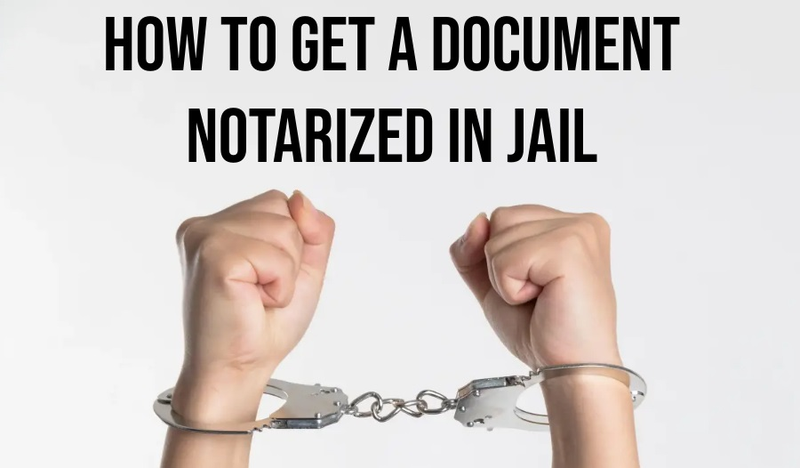


A prison notary service plays a crucial role in the legal processes within correctional facilities. These specialized notaries provide essential services to incarcerated individuals, enabling them to execute legally binding documents while behind bars. Whether it's signing affidavits, powers of attorney, or other legal documents, the prison notary service ensures that inmates have access to the necessary paperwork. This service helps inmates exercise their rights and participate in legal proceedings, offering them a level of convenience and efficiency within the confines of the prison system. By bringing notarial services to the incarcerated population, prison notaries contribute to a fair and accessible justice system.


Step 1: Research and Understand the Requirements Before embarking on the power of attorney process, it is crucial to research and familiarize yourself with the specific regulations and requirements governing powers of attorney in your jurisdiction. Each state may have its own set of rules and prescribed forms that must be followed. By obtaining this knowledge, you can ensure that the power of attorney document meets all legal criteria.
Step 2: Consult an Attorney to navigate the complexities of the power of attorney process effectively, it is highly recommended to consult an attorney who specializes in estate planning or elder law. These professionals possess the necessary expertise to provide legal advice and guide you through the intricacies of the process, ensuring that all essential steps are executed correctly.
Step 3: Choose an Attorney-in-Fact The incarcerated person must select a trusted individual as their attorney-in-fact or agent. This chosen representative will be empowered to make decisions on their behalf during their incarceration. It is crucial to select someone who is reliable, responsible, and capable of carrying out the required tasks.
Step 4: Prepare the Power of Attorney Document Working alongside your attorney or a legal document preparer, draft the power of attorney document. This document should include specific details such as the full name of the incarcerated person, the chosen attorney-in-fact's full name, and the powers being granted to the attorney-in-fact. Your attorney can guide you in ensuring that the document is comprehensive and legally sound.
Step 5: Obtain prison approval In many cases, prisons have their own procedures for granting powers of attorney to incarcerated individuals. To move forward with the process, contact the prison's legal department or administration to understand their specific requirements and seek approval for the power of attorney document. Compliance with these procedures is essential for the document's validity.
Step 6: Execute the Power of Attorney once you have obtained prison approval, the incarcerated person will need to sign the power of attorney document. Depending on the prison's policies, this can be done through their designated notary or legal services. PDX Signing Mobile Notary can assist you in this process by providing professional notary services, ensuring that the document is properly executed.
Step 7: Notarize the document to add an additional layer of authentication, the executed power of attorney document must be notarized. PDX Signing Mobile Notary, with their expertise in loan signing services and i9 verification, can provide mobile notary services, making the notarization process convenient and efficient. Their experienced notaries will ensure that the document meets all necessary legal requirements.
Step 8: Distribute copies Make multiple copies of the executed and notarized power of attorney document. Distribute these copies to the attorney-in-fact, the prison administration, the incarcerated person's legal representative (if any), and any other relevant parties involved in the individual's affairs. This distribution ensures that all parties are aware of the granted powers and can act accordingly.
Step 9: Keep records Maintain accurate records of the power of attorney document, including the date of execution, notarization details, and distribution of copies. These records are crucial for future reference and may be required for legal purposes. PDX Signing Mobile Notary can assist in keeping these records organized and readily accessible.
Conclusion
Acquiring power of attorney for an incarcerated person requires careful adherence to legal processes and regulations. By following the steps outlined in this guide and utilizing the services of PDX Signing Mobile Notary, you can ensure that the process is conducted efficiently and professionally. Their expertise in i9 verification, Notary jail signing services, and mobile notary services will simplify the process, making it easier to navigate during this challenging time.



Yes, a mobile notary can go to jail if they commit a crime or engage in misconduct in the performance of their duties. Notaries are public officials who are responsible for verifying the identity of individuals and certifying the authenticity of documents. They are expected to act with honesty, integrity, and impartiality in carrying out their duties.
Additionally, if a notary fails to properly perform their duties, such as failing to properly identify a signer or failing to administer an oath, they may be subject to civil penalties or disciplinary action by their state's notary regulating authority.
